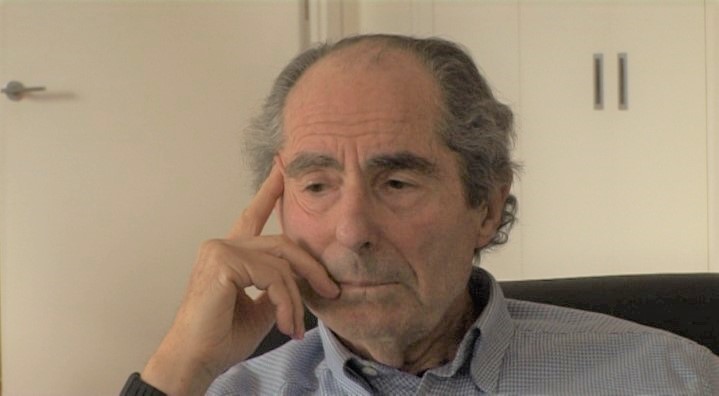NEXT STORY

The war and anti-Semitism
RELATED STORIES

NEXT STORY

The war and anti-Semitism
RELATED STORIES


|
Views | Duration | |
|---|---|---|---|
| 1. Early days and my family | 2 | 2171 | 06:08 |
| 2. Neighborhoods | 1 | 1092 | 02:40 |
| 3. The war and anti-Semitism | 1 | 1147 | 01:32 |
| 4. My brother Sandy | 2373 | 01:37 | |
| 5. Freedom! | 997 | 02:47 | |
| 6. The University of Chicago and the army | 1121 | 02:18 | |
| 7. Becoming a writer: my first taste of adulthood | 1186 | 01:44 | |
| 8. Defender of the Faith | 1792 | 02:30 | |
| 9. Goodbye Columbus | 1177 | 01:11 | |
| 10. Letting Go | 1040 | 01:33 |

My father had four or five siblings and only one of them went... went to high school as far as I know. My mother had two sisters and a brother… three sisters and a brother and they all went to high school. So my... my mother's family's a little better off, not well off at all, but a little better off. My father was essentially raised in what was a slum at that time, a Jewish slum in Newark. I grew up in a... in a different neighborhood from my father in Newark. I grew up in what was called the Weequahic section and that is the section which was really settled in the 1920s or so by the post immigrant generation and it was a Jewish neighborhood. The city of Newark had about 400,000 people at that time when I was born, the city was divided up really into ethnic villages. There... there was our predominantly overwhelmingly Jewish neighborhood, there was an Irish neighborhood, there was an Italian neighborhood, there was a Slavic neighborhood.
The Slav's, the Italians, the Irish, tended to sometimes live together, they were Catholic together, they had that in common. Then there was a black neighborhood – then called the Negro neighborhood – and the Negros, and the Jews were the smallest minorities in the city. So I came of age in this Jewish neighborhood and in my recollection, I think in fact, it was a wonderful childhood. I didn't feel… I was too young to feel the depression. I didn't know how little money we had and my memories really begin with the war. My memories really begin very vividly with December 7th 1941, the Japanese attack on Pearl Harbor. Two days later, I think, Hitler declared war on the US as well. So there we were in the Second World War and from that moment forward my childhood becomes quite vivid to me.
The fame of the American writer Philip Roth (1933-2018) rested on the frank explorations of Jewish-American life he portrayed in his novels. There is a strong autobiographical element in much of what he wrote, alongside social commentary and political satire. Despite often polarising critics with his frequently explicit accounts of his male protagonists' sexual doings, Roth received a great many prestigious literary awards which include a Pulitzer Prize for fiction in 1997, and the 4th Man Booker International Prize in 2011.
Title: Neighborhoods
Listeners: Christopher Sykes
Christopher Sykes is an independent documentary producer who has made a number of films about science and scientists for BBC TV, Channel Four, and PBS.
Tags: Newark, Weequahic section, Pearl Harbor
Duration: 2 minutes, 40 seconds
Date story recorded: March 2011
Date story went live: 18 March 2013